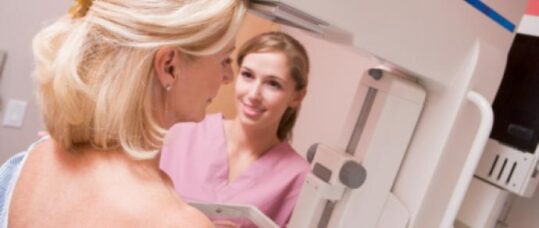Researchers’ findings lead to understanding the genetic instructions that cause breast cancer

Researchers have come a step closer to understanding the genetic instructions that cause breast cancer and could pave the way for personalised healthcare for cancer.
They have uncovered five new genes associated with breast cancer and 13 new mutational signatures that influence the development of tumours.
The team, led by Dr Serena Nik-Zainal of the Wellcome Trust Sanger Institute in Cambridge said their findings, published in the journal Nature,make it a step closer to tailoring treatments to patients.
Related Article: New digital support for community nurses in 10-year plan
“In the future, we’d like to be able to profile individual cancer genomes so that we can identify the treatment most likely to be successful for a woman or man diagnosed with breast cancer.
“It is a step closer to personalised healthcare for cancer,” said Nik-Zainal.
The discovery was hailed at bringing scientists “much closer to a complete description of the changes in DNA in breast cancer and thus to a comprehensive understanding of the causes of the disease and the opportunists for new treatments,” by the institute’s director Professor Sir Mike Stratton.
The team of scientists examined the cancer genomes in 560 breast cancers – four of them from men.
Everyone’s cancer genome provides an account of the genetic changes throughout their life, as DNA in their cells change and become damaged by mutations they form mutational patterns or signatures.
The team looked at the mutational signatures for each person’s tumour.
Related Article: Nurse had to ‘freeze’ PPE during pandemic to re-use in care home, Covid inquiry hears
They found that women carrying the BRCA1 or BRCA2 gene with an increased risk of developing ovarian or breast cancer had genome profiles that were highly distinctive from each other.
They said almost all the breast cancers had at least one identifiable driver, but the number with only one was “perhaps surprising”.
Dr Ewan Birney from the European Bioinformatics Institute, who was also involved in the study, said scientists had been trying to find out if parts of DNA that did not have codes for specific roles were involved in driving cancer.
The findings “gave us the first large scale view of the rest of the genome, uncovering some new reasons why breast cancer arises, and gave us an unexpected way to characterise the types of mutations that happen in certain breast cancers”.
Related Article: Tell us what practice nursing means to you and potentially win £1,000

See how our symptom tool can help you make better sense of patient presentations
Click here to search a symptom


Researchers have come a step closer to understanding the genetic instructions that cause breast cancer and could pave the way for personalised healthcare for cancer.



